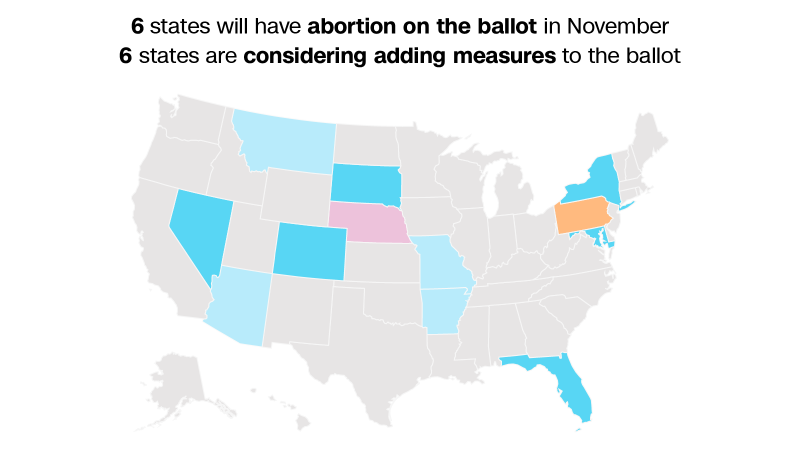In the upcoming November elections, voters all over the country are set to determine the fate of abortion access in their respective states. Organizers are working tirelessly to secure a series of measures on the 2024 ballot, with the aim of either restoring or protecting the right to an abortion, as well as some measures aimed at restricting it.
Abortion rights advocates are hoping that these efforts will bring the issue of reproductive health access back to the forefront, especially after the Supreme Court’s Dobbs decision overturned Roe v. Wade in 2022, effectively eliminating the national right to an abortion.
The proposed ballot measures seek to enshrine the right to an abortion in state constitutions, in response to a wave of restrictive trigger laws that have been implemented since the Dobbs decision. Some states have already passed abortion policies that limit access, prompting organizers to push for measures that protect this right.
Six states, including Colorado, Florida, Maryland, Nevada, New York, and South Dakota, have already secured abortion measures on the 2024 ballot. Florida, in particular, is in focus as it has become a crucial access point for individuals seeking abortion services in a region where such services are becoming scarcer. Additionally, a six-week abortion ban in Florida replaced the state’s previous 15-week ban on May 1.
In New York, the Equal Rights Amendment was briefly struck from the ballot by a state judge, but State Attorney General Letitia James successfully appealed the decision and had it reinstated by a state appeals court in June.
Organizers in various states are currently working to secure funding, gather signatures, and navigate the legal requirements needed to place abortion measures on the 2024 ballot. This process often involves collecting a certain number of signatures by a specific deadline, and in some states, having the ballot language approved by a state court.
Arizona and Montana have proposed measures that protect abortion access up to the point of viability, defined by doctors as around 24 weeks into pregnancy. Arkansas is contemplating a measure that would allow abortion up to 20 weeks into pregnancy, or in cases of rape, incest, or fatal fetal anomalies.
While a potential measure in Missouri aims to broadly protect reproductive care and could still make it on the ballot, an opposing measure to ban abortion permanently did not advance out of the legislative session.
The ongoing debate also touches on exceptions to abortion restrictions in cases of medical emergencies. Doctors and lawmakers are grappling with defining what constitutes a medical emergency that would allow for an abortion past the point of viability to protect a pregnant person’s life or health.
Ultimately, the upcoming elections will serve as a litmus test for voters’ support of abortion access. Advocates are heartened by the overwhelming support shown in states where such measures have already been voted on. Proposals aimed at protecting abortion access have passed with flying colors, while those seeking to restrict it have failed.
Organizers emphasize that these votes not only provide legal protection for patients and healthcare providers but also send a clear message to elected officials about the desires of the voters.











